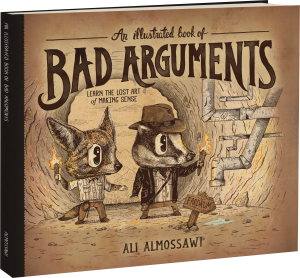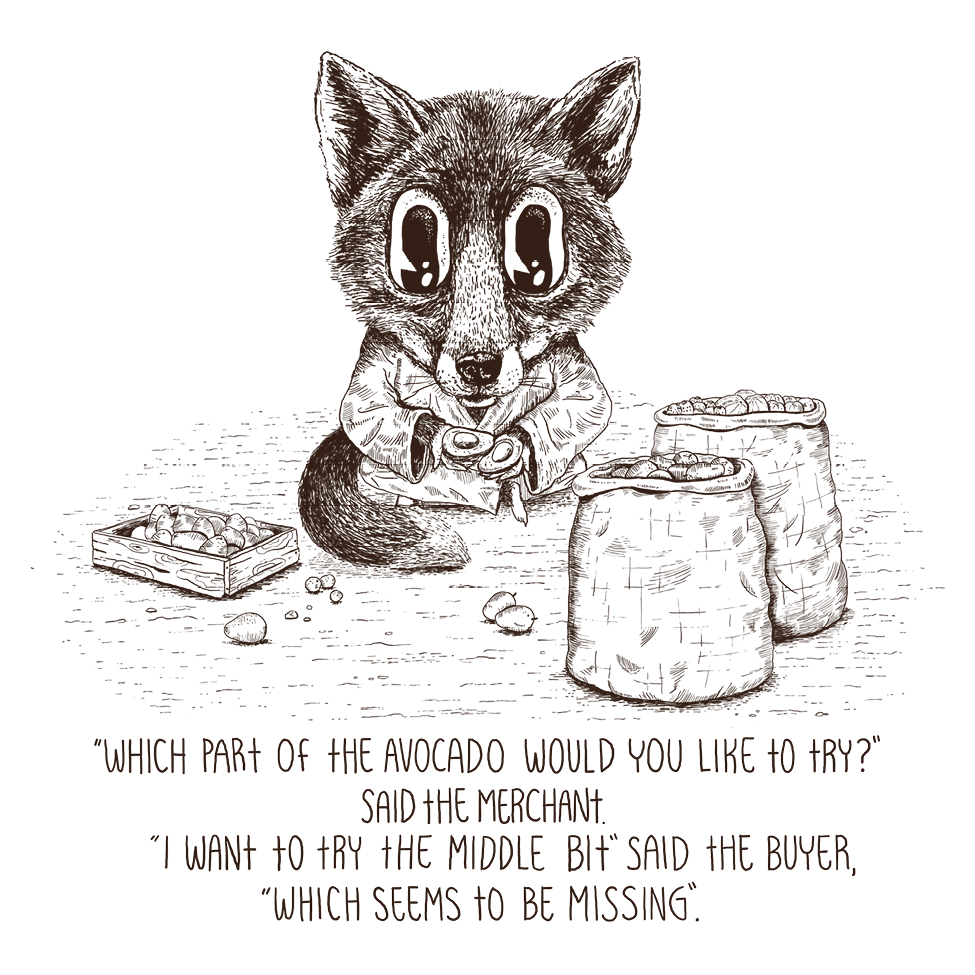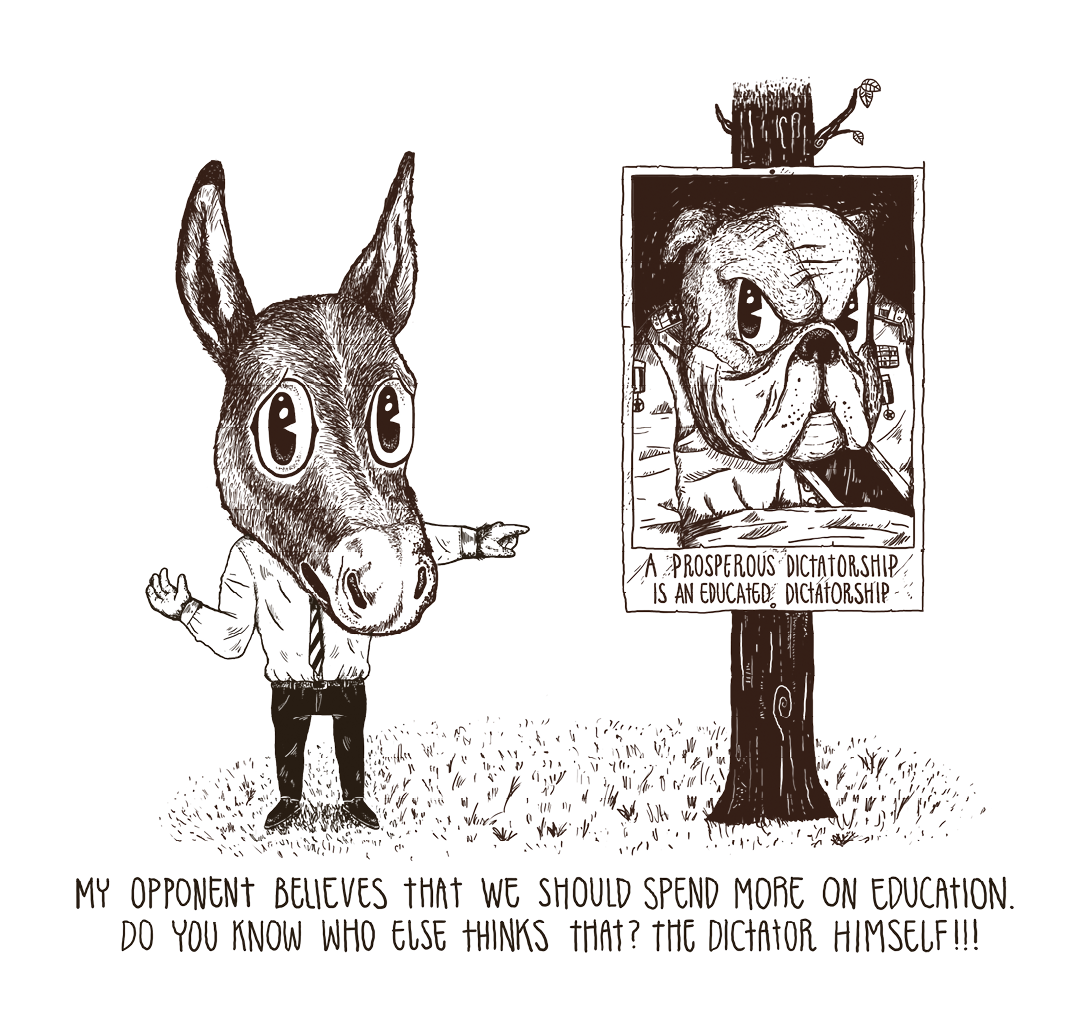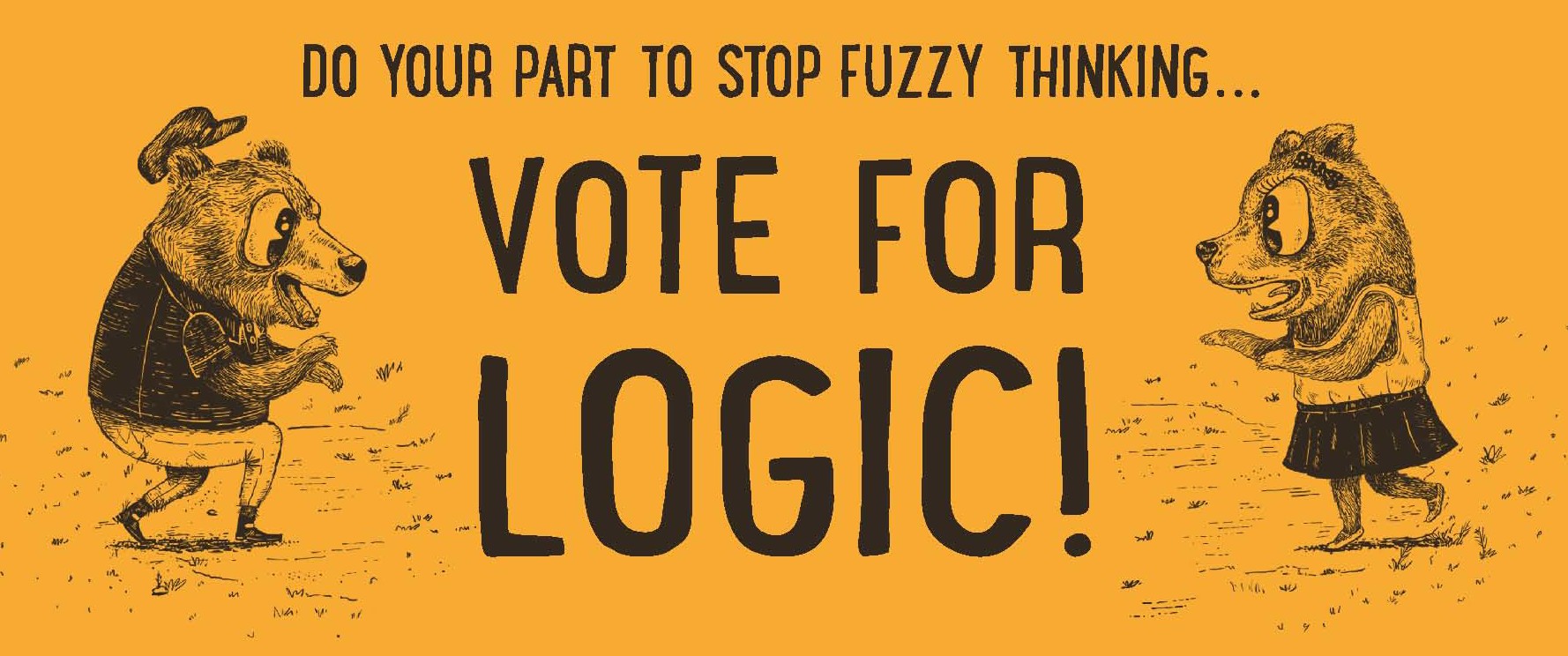Tonight, Boulder, CO will host the third national debate of the Republican primary race. As with any public debate, no matter who the players might be, this event is very likely to be riddled with vague platitudes, ad hominem attacks, and other flavors of logical fallacy. Most politicians, like some of us at least some of the time, are guilty of committing this crime every once in a while, and finding a fallacy in an argument is not necessarily the same as proving its conclusion false—the conclusion may be true, but you still need better reasoning to back it up.
Whether you agree with the candidates or not, you have to admit: the election cycle brings hefty media exposure to a lot of important issues… and bad arguments! If we can get better at identifying poor logic, maybe we can hold our elected officials to a higher standard of reasoning as well.

If you want to keep an eye out for bad arguments in tonight’s debate, here are four common fallacies as explained in An Illustrated Book of Bad Arguments by Ali Almossawi:
1. Slippery Slope
A slippery slope argument attempts to discredit a proposition by arguing that its acceptance will undoubtedly lead to a sequence of events, one or more of which are undesirable. Although the sequence of events may be possible—each transition occurring with some probability—this type of argument assumes that every transition is inevitable—while providing no evidence in support of that.
 Consider the following argument, made by Ted Cruz during the second Republican primary debate:
Consider the following argument, made by Ted Cruz during the second Republican primary debate:
“The single biggest national security threat facing America right now is the threat of a nuclear Iran. Weakness is provocative, and this Iranian nuclear deal is nothing short of catastrophic. This deal […] will only accelerate Iran’s acquiring nuclear weapons.”
This is an example of a slippery slope argument because it assumes a) that the Iran deal will accelerate Iran’s acquiring nuclear weapons, and b) that this development will pose the single biggest national security threat facing America, without providing evidence for either assumption.
2. False Dilemma
A false dilemma is an argument that presents a limited set of two possible categories and assumes that everything in the scope of the discussion must be an element of that set. For example, “In the war on fanaticism, there are no sidelines; you are either with us or with the fanatics.” In reality, there is a third option, one could very well be neutral; and a fourth option, one may be against both; and even a fifth option, one may empathize with elements of both.

In the first Democratic primary debate, Bernie Sanders fell back on a false dilemma when defending President Obama’s intervention strategy in Syria, claiming that “I think the president is trying very hard to thread a tough needle here, and that is to support those people who are against Assad, against ISIS, without getting us on the ground there, and that’s the direction I believe we should go.”
This presents a false dilemma in implying that the only alternative to military intervention is to take no action at all.
3. Appeal to Fear
This fallacy plays on the fears of an audience by imagining a scary future that would be of their making if some proposition were accepted. Rather than provide solid evidence that the proposition would lead to a certain conclusion (which might be a legitimate cause for fear), such arguments rely on rhetoric or threats. For example, “I ask all employees to vote for my chosen candidate. If the other candidate wins, he will raise taxes and many of you will lose your jobs.”

This fallacy is a common standby employed by politicians of all stripes and colors – remember when Ben Carson compared America’s “politically correct” culture to Nazi Germany? It’s not exactly a leap that he’s scared to make, either…
4. Guilt by Association
Guilt by association is used to discredit an argument for proposing an idea that is shared by some socially demonized individual or group. For example, “My opponent is calling for a healthcare system that would resemble that of socialist countries. Clearly, that would be unacceptable.” Whether or not the proposed healthcare system resembles that of socialist countries has no bearing on whether it is good or bad.
 In our thoroughly partisan electoral system, political association gets thrown around as an accusation quite often. Bernie Sanders is often derided for his “socialism,” but his accusers rarely feel the need to explain why this is a problem. As an example, consider Donald Trump’s recent “attack” on Sanders, stating merely that the Vermont Senator is a “communist-slash-socialist.”
In our thoroughly partisan electoral system, political association gets thrown around as an accusation quite often. Bernie Sanders is often derided for his “socialism,” but his accusers rarely feel the need to explain why this is a problem. As an example, consider Donald Trump’s recent “attack” on Sanders, stating merely that the Vermont Senator is a “communist-slash-socialist.”
Just remember…
Rhetoric is not the same as logic. Faulty arguments often sound convincing, but it is never enough to believe a conclusion simply because it is convenient or expedient. At the same time, an argument that contains a logical fallacy is not necessarily wrong, just unproven. If you want to stay critical and learn more about logical pitfalls, consider checking out the book that inspired this post: An Illustrated Book of Bad Arguments details these and 15 other common fallacies, with illustrations for each one!
 Learn more about the book, and the author, on Ali’s website.
Learn more about the book, and the author, on Ali’s website.
 Ali Almossawi holds a Masters in Engineering Systems from MIT and a Masters in Software Engineering from Carnegie Mellon University. He resides in San Francisco with his wife and daughter, where he works as a data visualization designer on Mozilla’s Metrics Team, and occasionally collaborates with the MIT Media Lab. Formerly, Ali spent time at both Harvard and the Software Engineering Institute (SEI), where his research involved creating predictive models of source code quality. His work has appeared in Scientific American, Wired, The New York Times, Fast Company, and others.
Ali Almossawi holds a Masters in Engineering Systems from MIT and a Masters in Software Engineering from Carnegie Mellon University. He resides in San Francisco with his wife and daughter, where he works as a data visualization designer on Mozilla’s Metrics Team, and occasionally collaborates with the MIT Media Lab. Formerly, Ali spent time at both Harvard and the Software Engineering Institute (SEI), where his research involved creating predictive models of source code quality. His work has appeared in Scientific American, Wired, The New York Times, Fast Company, and others.





Pingback: A Summer Sale for the Rational Reader | The Experiment